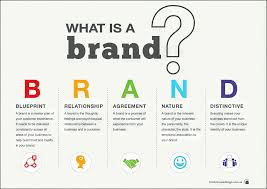Elevate Your Brand with Expertise from a Brand Strategy Consulting Agency
The Power of Brand Strategy Consulting Agencies
In today’s competitive business landscape, establishing a strong and memorable brand is essential for success. This is where brand strategy consulting agencies play a crucial role. These agencies are dedicated to helping businesses develop a clear and effective brand strategy that sets them apart from their competitors and resonates with their target audience.
Brand strategy consulting agencies work closely with businesses to define their brand identity, values, positioning, and messaging. They conduct in-depth research to understand the market landscape, consumer preferences, and competitive analysis. Based on this information, they develop a comprehensive brand strategy that guides all aspects of the business’s communication and marketing efforts.
One of the key benefits of working with a brand strategy consulting agency is their expertise and outside perspective. These agencies bring a fresh set of eyes to the table and can offer insights and ideas that businesses may not have considered. They help businesses identify their unique selling points and craft a compelling brand story that connects with consumers on an emotional level.
Brand strategy consulting agencies also help businesses build consistency across all touchpoints. From logo design and visual identity to tone of voice and customer experience, they ensure that every interaction reinforces the brand’s values and personality. This consistency builds trust with consumers and creates a strong brand presence in the market.
Furthermore, brand strategy consulting agencies can assist businesses in navigating challenges such as rebranding, launching new products or services, entering new markets, or managing reputation crises. Their strategic guidance helps businesses make informed decisions that align with their long-term branding goals.
In conclusion, brand strategy consulting agencies play a vital role in helping businesses create impactful brands that resonate with consumers and drive growth. By leveraging their expertise and strategic approach, businesses can establish a strong brand presence that sets them up for success in today’s competitive market.
Unlocking Brand Potential: The Benefits of Engaging a Brand Strategy Consulting Agency
- Expertise in developing a clear and effective brand strategy.
- Fresh perspective and innovative ideas to differentiate businesses from competitors.
- In-depth research to understand market landscape and consumer preferences.
- Help in building consistency across all brand touchpoints for a strong brand presence.
- Assistance in navigating challenges like rebranding, product launches, and market entries.
- Strategic guidance to make informed decisions aligned with long-term branding goals.
Challenges of Engaging a Brand Strategy Consulting Agency: Cost, Alignment, Time, and Dependency
- Costly services that may not be feasible for small businesses with limited budgets.
- Potential lack of alignment between the agency’s creative vision and the client’s expectations.
- Time-consuming process that requires thorough research and strategic planning, leading to longer project timelines.
- Dependency on external expertise, which may hinder internal team development in brand strategy.
Expertise in developing a clear and effective brand strategy.
A key advantage of partnering with a brand strategy consulting agency is their expertise in developing a clear and effective brand strategy. These agencies possess the knowledge and experience to analyse market trends, consumer behaviour, and competitive landscapes to craft a strategic roadmap that aligns with the business’s objectives. By leveraging their expertise, businesses can create a compelling brand identity that resonates with their target audience, differentiates them from competitors, and sets a strong foundation for long-term success.
Fresh perspective and innovative ideas to differentiate businesses from competitors.
Brand strategy consulting agencies offer businesses a valuable advantage by providing a fresh perspective and innovative ideas that set them apart from their competitors. By bringing a new set of eyes to the table, these agencies can identify unique opportunities and creative solutions that businesses may not have considered on their own. This fresh approach helps businesses differentiate themselves in the market, attract the attention of their target audience, and stay ahead of the competition. Through strategic thinking and out-of-the-box ideas, brand strategy consulting agencies help businesses carve out a distinctive identity that resonates with consumers and drives success.
In-depth research to understand market landscape and consumer preferences.
One significant advantage of partnering with a brand strategy consulting agency is their commitment to conducting thorough research to gain a deep understanding of the market landscape and consumer preferences. By delving into market trends, competitor analysis, and consumer behaviour, these agencies can uncover valuable insights that inform the development of a tailored brand strategy. This in-depth research ensures that businesses are equipped with the knowledge needed to make informed decisions that resonate with their target audience and effectively differentiate them in a competitive market.
Help in building consistency across all brand touchpoints for a strong brand presence.
Brand strategy consulting agencies offer invaluable assistance in building consistency across all brand touchpoints to establish a strong brand presence. By ensuring that every interaction, from visual identity to communication tone, aligns with the brand’s values and messaging, these agencies help businesses create a cohesive and memorable brand experience for their target audience. This consistency not only fosters trust and loyalty among consumers but also reinforces the brand’s identity in the market, ultimately leading to a more impactful and recognisable brand presence.
Assistance in navigating challenges like rebranding, product launches, and market entries.
Brand strategy consulting agencies offer invaluable assistance in navigating complex challenges such as rebranding, product launches, and market entries. With their strategic guidance and industry expertise, these agencies help businesses make informed decisions and develop effective strategies to successfully navigate these critical milestones. Whether it’s redefining brand identity during a rebranding process, creating impactful launch campaigns for new products or services, or devising market entry strategies to penetrate new markets, brand strategy consulting agencies provide the necessary support to ensure businesses achieve their branding goals and drive growth in competitive environments.
Strategic guidance to make informed decisions aligned with long-term branding goals.
One significant advantage of partnering with a brand strategy consulting agency is their provision of strategic guidance that enables businesses to make informed decisions that are in alignment with their long-term branding goals. By leveraging the expertise and insights of these agencies, businesses can navigate complex challenges and opportunities with clarity and purpose, ensuring that every decision made contributes towards building a strong and consistent brand identity that resonates with their target audience. This strategic approach not only helps businesses stay focused on their branding objectives but also empowers them to make proactive choices that support sustainable growth and success in the competitive market landscape.
Costly services that may not be feasible for small businesses with limited budgets.
One significant drawback of brand strategy consulting agencies is the high cost of their services, which may not be feasible for small businesses operating with limited budgets. The investment required to engage a brand strategy consulting agency can be substantial, making it challenging for smaller companies to afford their expertise. This financial barrier could potentially exclude small businesses from accessing the valuable insights and strategic guidance that these agencies offer, hindering their ability to develop a strong and competitive brand presence in the market.
Potential lack of alignment between the agency’s creative vision and the client’s expectations.
One potential drawback of working with a brand strategy consulting agency is the risk of a lack of alignment between the agency’s creative vision and the client’s expectations. Due to differing perspectives, priorities, or communication gaps, there may be instances where the agency’s proposed branding strategies or creative concepts do not fully resonate with what the client had in mind. This mismatch can lead to misunderstandings, delays in project timelines, and ultimately impact the effectiveness of the branding efforts. It is crucial for both parties to maintain open and clear communication throughout the collaboration to ensure that the final outcome aligns with the client’s vision while benefiting from the agency’s expertise.
Time-consuming process that requires thorough research and strategic planning, leading to longer project timelines.
One significant drawback of working with a brand strategy consulting agency is the time-consuming nature of the process. Developing a comprehensive brand strategy involves conducting thorough research, market analysis, and strategic planning, which can extend the project timeline significantly. The need for in-depth exploration and careful consideration at each stage of the branding process may result in delays in implementation and execution. Businesses seeking quick results or facing time constraints may find this aspect challenging as they navigate through the intricate and detailed process of brand strategy development with the consulting agency.
Dependency on external expertise, which may hinder internal team development in brand strategy.
One significant drawback of relying on a brand strategy consulting agency is the potential dependency it creates on external expertise, which can hinder the development of the internal team’s skills and knowledge in brand strategy. When businesses consistently turn to external agencies for strategic guidance, their internal team may miss out on valuable learning opportunities and hands-on experience in developing and implementing brand strategies. This over-reliance on external experts can limit the growth and autonomy of the internal team, as they may become accustomed to outsourcing critical branding decisions rather than building their own expertise in-house. As a result, the long-term sustainability and agility of the business’s brand strategy capabilities may be compromised.











